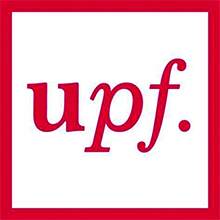

The UPF is set to become one of the leading European universities, developing its own identity model based on quality teaching, proximity to students, maximum internationalisation and an emphatic orientation towards research and innovation. The three areas in which it specialises –social sciences and humanities, biomedical sciences and information and communication sciences and technologies - place the person and their relation to the polis at the very centre of the University’s project. To position the University as a research institution with a clear vocation for international excellence that will enable it to capture and retain talent, and re-assert its present position by improving its research infrastructures. To consolidate the current teaching model in keeping with the European educational framework, with an innovative, high-quality teaching learning model that will ensure the solidity and competitiveness of all the teaching offered by the UPF, with special emphasis on the creation of the support systems best suited to each context. To plan and develop teaching and research with a view to favouring innovation and strengthening knowledge transfer to society in co-ordination with the social and business actors comprising the University’s environment. To design an overall strategy allowing the University as a whole to attain theinternational presence, structure and dimension befitting the quality of its teaching and research. To strengthen an institutional structure that will facilitate the attainment of the UPF25 YEARS strategy’s goals by reviewing the state of the internal governance and organisation of the UPF Group, adapting its management instruments and promoting greater cohesion of the university community. To define a sustainable and more diversified funding model.
| Subject | Rank |
|---|
| Subject | Rank |
|---|---|
Economics | 51-75 |
Biotechnology | 76-100 |
Biological Sciences | 76-100 |
Statistics | 76-100 |
Public Health | 101-150 |
Political Sciences | 101-150 |
Communication | 101-150 |
Human Biological Sciences | 151-200 |